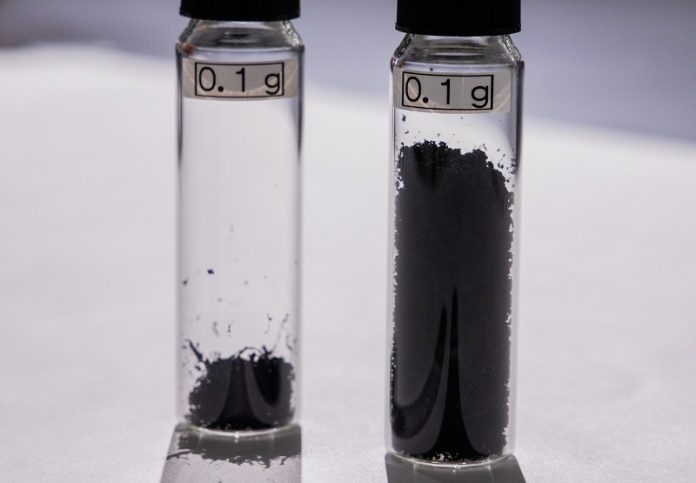
A team of researchers at the Korea Electrotechnology Research Institute (KERI), led by Dr. Joong Tark Han, has developed a groundbreaking method to produce carbon nanotube (CNT) powder that is highly dispersible.
This advancement is a game-changer for creating environmentally-friendly secondary batteries using a dry manufacturing process.
What are carbon nanotubes?
Carbon nanotubes are made of hexagonal carbon chains shaped into long, cylindrical structures. They are incredibly strong—100 times tougher than steel—and conduct electricity as well as copper.
These unique properties make CNTs ideal for use in secondary batteries, where they can act as conductive additives to significantly boost energy density.
Despite their benefits, CNTs have a major drawback: they tend to stick together, forming tangled structures that are hard to mix with other materials used in batteries, such as binders and active materials. This is especially challenging for dry battery manufacturing processes, which don’t use solvents to help distribute the CNTs evenly.
Dr. Han’s team has solved this problem by developing a way to produce CNT powder that resists clumping and remains well-dispersed during dry processes.
After years of research, they found a method to keep small bundles of CNTs evenly spread out in powder form.
This new CNT powder allows for the production of high-capacity battery cells by effectively using CNTs’ one-dimensional structure to connect other battery materials electrically. The result is a more efficient and powerful battery, without needing solvents.
The dry process is better for the environment because it doesn’t use harmful solvents. This simplifies the manufacturing process, eliminates the need for solvent recovery systems, and reduces costs. The eco-friendly and cost-saving aspects of this technology are already drawing attention from global electric vehicle manufacturers.
“We’re the first in the world to effectively disperse CNTs for conductive additives in dry processes,” said Dr. Han. “This technology will help establish a significant lead in battery innovation.”
The KERI team has filed a domestic patent for their high-dispersibility CNT powder technology and is testing its use in various battery applications, including thick-film anodes and cathodes for high-capacity cells.
Dr. Han believes the technology will also be crucial for next-generation batteries like lithium-sulfur and all-solid-state batteries, which rely on dry processes. The team plans to work with industries that need this cutting-edge solution to transfer and commercialize the technology.
This advancement not only boosts battery performance but also paves the way for cleaner, more sustainable energy solutions in industries like electric vehicles and renewable energy storage.
Source: KSR.



